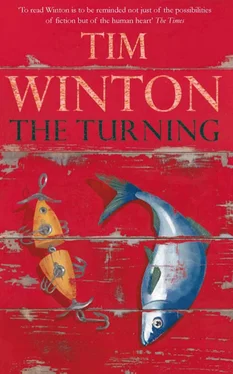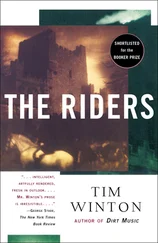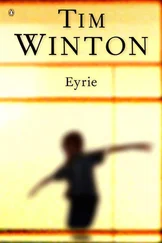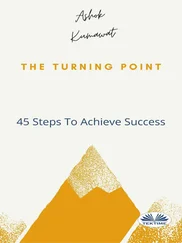You retreat to the back step to sit with the dog. Behind you, in the laundry, your mother wrestles with the twin-tub. All day you sit there keeping watch and the trusty ignores you.
Next day there’s another one, an Aborigine. He’s leery of the dog but works without pause all day, refusing even the tea and cake you’re sent out with. That evening you beg your mother to make them stop sending trusties. You swear you’ll do all the yardwork yourself — it’s what the old man wanted — and besides, you tell her, you need the exercise. You don’t say anything about the coppers coming to the house with their smug looks and hair-ruffling. You want to say more, to talk about the transfer and everything going awry around you but it’s enough that she agrees, so you leave it at that and begin each day early by lighting the stove for breakfast and hot water, then feed the dog and split pine for tomorrow’s kindling before you fill the box with a day’s supply of slow-burning roots. School happens at a distance — you’re there but barely present — and afterwards you come home to mind your sister or break roots until sparks fly and your muscles burn. You eat dinner without saying much for fear of saying everything and afterwards you stack records on the turntable — Tom Jones and Herb Alpert’s Tijuana Brass — so your mother can listen while she irons.
Every night at dusk a paddy wagon cruises by. You stand, unwaving, at the kitchen window. You dry the dishes, jiggle your sister, do your homework and lie awake sore and heavy-lidded.
Some nights you’re sure there’s someone in the garden beneath your window. When you get up there’s no one there. Other nights you just can’t bear to look.
Nobody visits, but the patrol car rolls by at all hours.
You chop wood, you totter, you see spots, but when the old man calls you stand jangling and upright by the phone while your mother goes foggy and soft on the line so long that by the time she puts you on you’re all wooden and formal and the old man sounds puzzled, even hurt, by the strange gap between you. But you have to clench your teeth so hard against sobs and silly laughter. You’re only a second away from begging him to come home or take you with him.
Somebody steals your bike from the verandah but neither you nor your mother calls the police. Then one night there’s a splash of glass out the front. You sit up in bed, startled as much by having found yourself asleep as by the sound itself, and you snatch up your torch, race through the house and throw open the door to see nothing more than a shattered beer bottle seething in a rime of bubbles on the path. When you flash the torchbeam around the yard and up and down the street, there’s nothing. The town hunkers, half lit, in the valley below. As you head inside for the dustpan and broom your mother appears in the doorway. Stay inside, she says. Don’t run out like that again.
But I had to see, you say.
Don’t ever do it again. You hear me?
You look away and nod.
You’re a good boy, she says.
And you are a good boy. You keep an eye out. You do your homework. You break two tons of mallee roots and your hands are leathery as a man’s. The woodshed is full and the excess is piled against it like a drystone wall. In the afternoons your mother walks to the shops. You offer to go for her but she insists. Most times she takes the baby in the stroller and while she’s gone you keep a look-out.
The rifle bolt lives in the old man’s bedside drawer between the Bible and a book of knots and splices. You take it out to turn it over in your hands, and even though you love the slick action of it sliding down the breech, you resist the temptation to slip it in. That doesn’t mean you can’t nurse the rifle and hold the bolt in the palm of your hand. Without a bolt a rifle’s not even a weapon.
From your parents’ window you look out on the strange town. Down there people are quietly stealing, cheating, lying. They’re starving their pets and flogging their kids and letting them hang in their wardrobes and burn in cars and choke to death in beachside toilets. And when legs are broken nothing happens, no charges are laid. It’s as if things like this are suddenly ordinary. You can’t believe how close you came to fitting in here. Everything you know and all the things you half know hang on you like the pressure of sleep.
You wait for your mother to appear in the street again, track her progress to the relative safety of the block and begin setting things back in their places before she reaches the gate.
You look so tired, she murmurs.
How many more weeks? you ask.
Four, she says. Four weeks.
You say nothing. But four weeks is impossible; you’ve already lost count and it feels like someone’s just adding weeks now to see you suffer or else the old man’s gone for good and no one’s got the guts to tell you. But he’d never do that. You know he wouldn’t.
Back from school one afternoon, you find the dog out by the woodshed, coughing, whining, turning in circles. Your mother leaves your sister with you while she walks it, drags it, carries it to the vet. You take the baby to your parents’ room and bounce her on the bed for a while to calm your nerves. Without your old man’s pillow the bed looks deformed. And your mother’s gone so long.
You put your sister on the floor, let her totter around for a while. You take the rifle from the wardrobe, stand by the window and stay calm. But the baby goes from sucking on the corner of the bedspread to hauling on the curtains and you have to leap back from the window before anybody sees you.
The house is naked up here, a bare box in a square of lawn. The front fence is barely waist high. There’s just not enough security, no protection. You open the bedside drawer and take out the bolt and slip it into the rifle. You check the breech, work the bolt and check twice more for safety, for piece of mind.
Finally your mother appears, hauling the dog up the hill.
Constipation, she says.
But you lie awake that night listening to the whimpering, writhing dog until you can’t bear it any longer and go out to the laundry to lie down beside it. You think about the dressing table in the oldies’ room with its barrettes and brushes and the single bottle of perfume which smells of the city, of frangipani and your old life. Across the table from your mother’s things, in the shadow of those filmy curtains, is a conglomeration of cut-glass jars full of bits — silver uniform buttons, butterfly nuts, ballbearings, cloudy marbles, the spare keys to the handcuffs, some bitsy gemstones and a few bullets. There’s a box of ammunition somewhere in the house but the only rounds you can locate are those three strays salted amongst all that crap. Trouble has found you and you’re ready for it.
When your mother wakes you at dawn the dog is dead beside you. She goes straight to the phone but the vet doesn’t answer. At the old man’s new posting nobody picks up. Your mother is angry now but you’re just tired. You dig a hole for the dog beside the shed where your two tons of wood stands like a wide, grey cairn. You declare that you’re not going to school. She doesn’t argue. She drinks coffee while you stoke the stove.
After an hour or so a paddy wagon pulls into the drive. Your mother goes out and you watch her talk to the smirking constable by the gate.
I have to go, she says coming in, straightening her hair with her fingers. I’m gonna sort this out. Your sister will be awake in a minute. Remember, Vic, you’re responsible.
How long will you be? you ask.
Long as it takes, love.
When she climbs into the cop car and is swept out into the street, you lock all the doors and windows. You check the baby in her cot and get the rifle and slide the bolt into it. For a few moments you stand behind the sheer curtain in your mother’s room and survey the town. There’s a southerly blowing. Ragged lines of spume streak the harbour. Steam and greasy smoke pour from the cannery stacks and clouds mottle the pale fingers of the silos. A shift whistle. A ship’s horn. Townspeople make their way up and down the hill. They pedal and jog, steer their bawling trucks, their glossy cars and mud-spattered utes, easing by as though you’re not even there. This window is an excellent vantage point. They don’t know how ready, how alert you are.
Читать дальше












